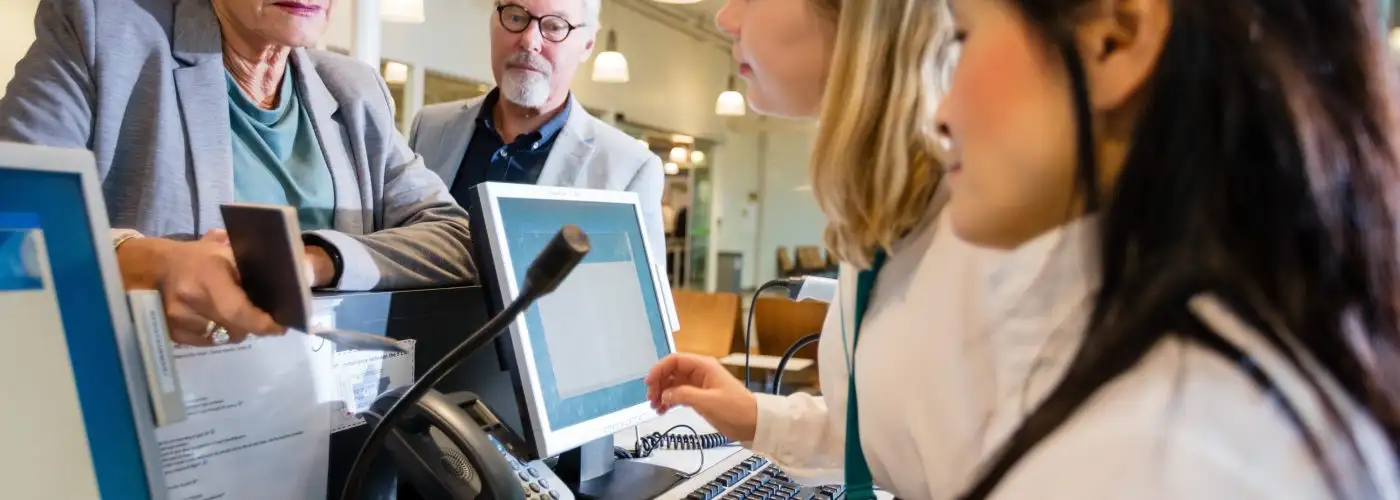Facial recognition technology is picking up steam in airports around the country. Last year, JetBlue and Delta both tested biometric scanning methods as possible replacements for boarding passes. Now comes news that Orlando International Airport will, according to the AP, “require a face scan of passengers on all arriving and departing international flights.”
In all cases, facial recognition technology aims to speed up the boarding process while reducing possible fraud at the security checkpoint. The process is simple: A scanner takes your photo in the airport, compares the photo of you on file at Customs and Border Patrol (CBP), and confirms your identity. The whole process takes (or should take) a matter of seconds.
But that’s where the simplicity ends.
What Happens When the Machine Is Wrong?
This, of course, is the big, big question.
The AP reports that “some privacy advocates say there are no formal rules in place for handling data gleaned from the scans, nor formal guidelines on what should happen if a passenger is wrongly prevented from boarding.” CBP says photos taken at the airport are held for 14 days before they are deleted.
“We’re comparing you against a photograph you’ve given the U.S. government for the purposes of travel,” John Wagner, an official with U.S. Customs and Border Protection, told the AP. “You know your picture is being taken. You’re standing in front of a camera. There’s nothing subversive about this, and we’re only comparing you against your passport photo.”
But “subversiveness” isn’t exactly the problem. Some observers worry that the scanners could mis-identify women, minorities, and children, because the photos used to “train” the software “underrepresent minorities, women and young people.” Children are an especially curious case, considering how quickly their appearance can change. A five-year-old could be traveling with a valid passport issued when she was a baby, for example.
“We’re talking about … a huge expansion of the number of people who will be scanned,” Harrison Rudolph, an associate at the Center on Privacy & Technology at the Georgetown University Law Center, told the AP. “Errors tend to go up as uses go up.”
Advocates like Rudolph worry that this exposes certain travelers to undue hassles at the airport, and say CBP has not provided adequate guidelines on what to do if a traveler’s scan is wrongly rejected. What do you do when a machine says you aren’t you? CBP says this hasn’t been a problem, but two U.S. senators (Ed Markey of Massachusetts and Mike Lee of Utah) sent a letter to the agency asking them to put something in writing. That seems like a reasonable request.
Readers, do you think facial recognition technology can help speed things up at the airport? Or is there simply too much risk that something could go wrong?
More from SmarterTravel:
We hand-pick everything we recommend and select items through testing and reviews. Some products are sent to us free of charge with no incentive to offer a favorable review. We offer our unbiased opinions and do not accept compensation to review products. All items are in stock and prices are accurate at the time of publication. If you buy something through our links, we may earn a commission.
Related
Top Fares From
Today's Top Travel Deals
Brought to you by ShermansTravel
France: 8-Night Paris, Avignon & Nice...
Infinity Worldwide Vacations
 vacation
$2880+
vacation
$2880+
Poconos: 3 Nts in Garden of...
ResortsAndLodges.com
 hotel
$305+
hotel
$305+
7-Nt Canada & New England Cruise,...
Princess Cruises
 cruise
$839+
cruise
$839+




